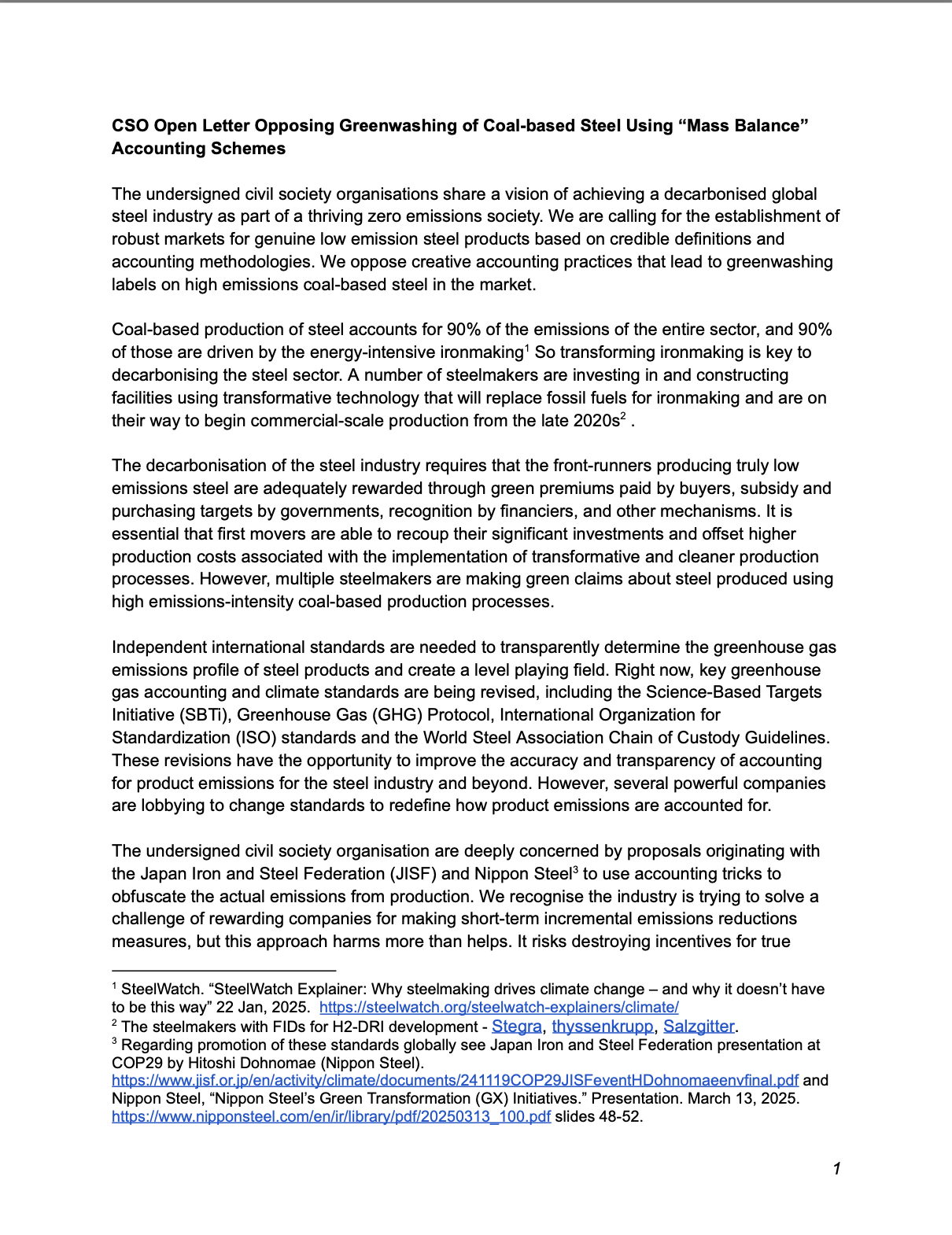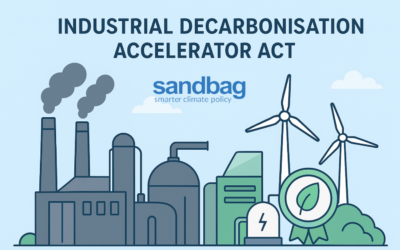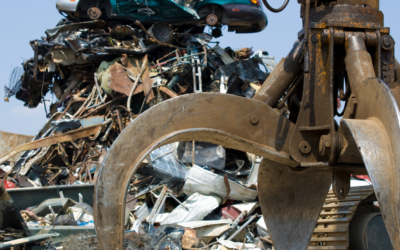Sandbag has co-signed a new open letter, alongside over 30 civil society organisations, warning against the inclusion of “mass balance” emissions accounting in international steel standards. The letter calls on standard-setters and corporate buyers to reject schemes that would allow emissions reductions from one part of a company’s operations to be arbitrarily reassigned to unrelated products — including coal-based steel.
The signatories highlight the risk that such methods could obscure the true emissions footprint of steel products, enable greenwashing, and undermine the credibility of climate-related product standards. They call for credible accounting rules grounded in physical traceability and full transparency.
About the open letter
The letter responds to proposals by the Japan Iron and Steel Federation (JISF) and Nippon Steel to embed “mass balance” accounting into global steel standards. These schemes would allow steelmakers to assign emissions cuts from one facility or process to other, unrelated products — even those made from coal-based production.
Key Findings
-
Mass balance enables misleading claims
Emissions cuts from one part of a company could be reassigned to unrelated products — including coal-based steel — regardless of actual production. -
No physical traceability
“Low-emissions” labels could be applied without any link to the site or process where reductions occurred. -
Undermines deep decarbonisation
Creates false parity between coal-based and genuinely low-emissions steel, weakening investment in clean technologies like H₂-DRI. -
Risk of greenwashing in standards
Embedding this method in PCFs or EPDs would obscure real emissions data and mislead buyers. -
Credible claims need clear rules
Low-emissions steel must be physically traceable, transparently reported, and third-party verified — not based on virtual reassignments.
Related publications
More on the Steel Industry
New Principles for Steel Labelling: response to the consultation on the Industrial Decarbonisation Accelerator Act
Sandbag’s response to the EU’s Industrial Decarbonisation Accelerator Act sets out four principles to guide green steel labelling schemes, promoting credible standards based on lifecycle emissions and system-wide decarbonisation.
Joint statement urges EU to boost the use of recycled steel scrap in the automotive sector
A new joint statement urges the EU to set binding targets for recycled steel use in cars, citing the climate benefits of secondary steel and the need to reduce demand for high-emission imports.
Towards a minimum recycled steel content in passenger cars: setting an initial target
The EU has around 286 million motor vehicles, and every year, 6.5 million of these are scrapped. If the steel scrap from these end-of-life vehicles (ELVs) is not managed well, valuable resources are lost, harming the environment.




